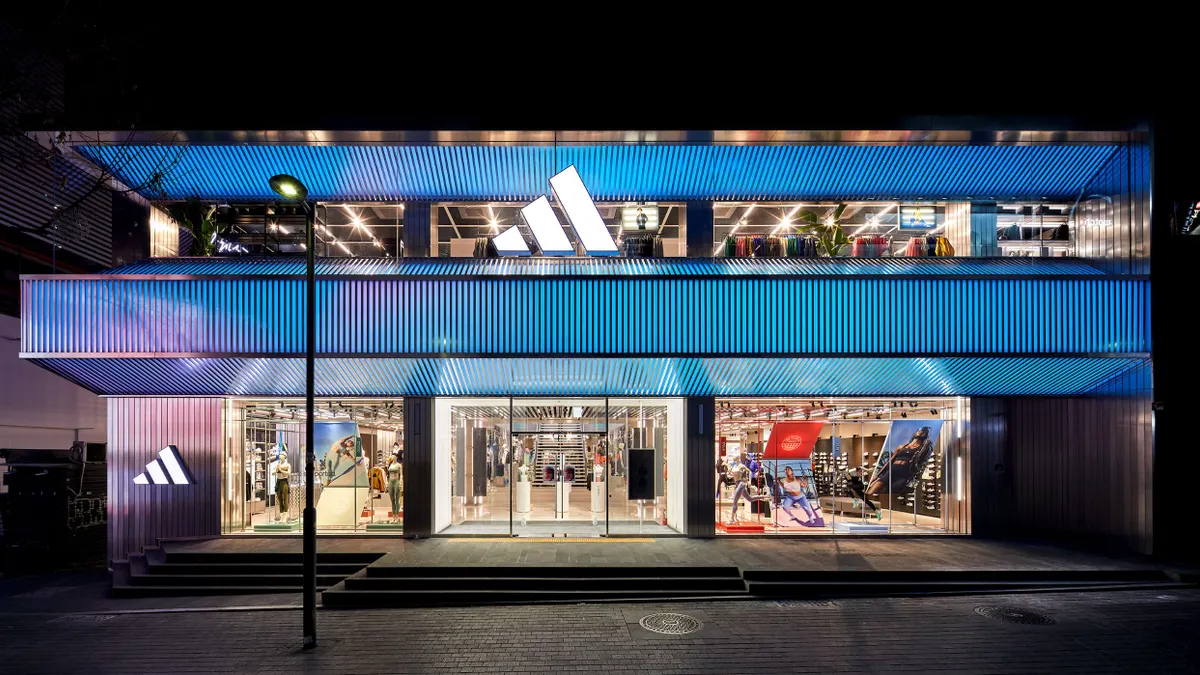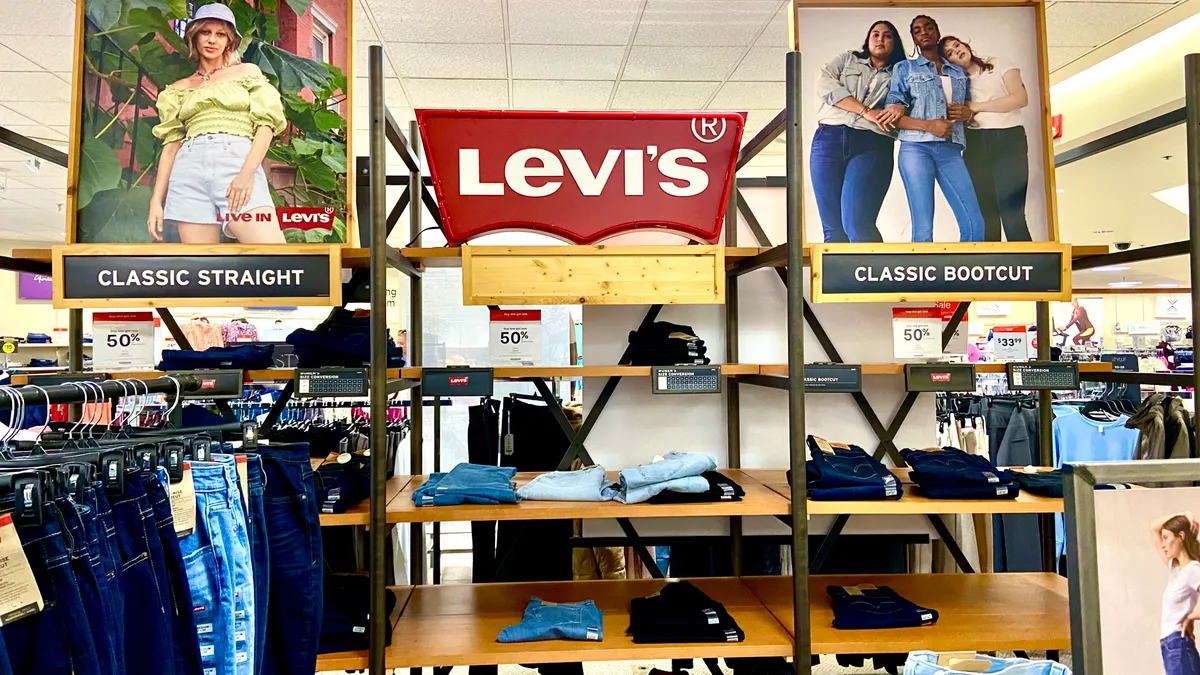Many consumers experienced a newfound appreciation for curbside pickup services offered by retailers this year. Those services — in addition to buy online, pick up in-store — had already started to become more popular in recent years, but it wasn't until the COVID-19 pandemic that the offering became a necessity for retailers.
Bed Bath & Beyond expanded its contactless curbside services and, as of May, the retailer said the service would be available at about 90% of its stores. Target last week also hailed its same-day fulfillment services, which include Drive Up and Pick Up, reporting that demand quadrupled in the first half of 2020.
According to Incisiv and Manhattan Associates research released last week, 85% of consumers reported having "significantly" increased using curbside pickup since the pandemic began and 80% said they expect to increase their usage of BOPIS or curbside pickup over the next six months.
However, in a move counter to that trend, Costco hasn't started offering curbside pickup. And doesn't plan to anytime soon.
"There's some retailers that are doing it because they feel they have to," Costco CFO Richard Galanti said on a call with analysts discussing fourth-quarter results, noting Costco's sales remain strong without it. "We don't have our head in the sand on it. We look at it. We have people here that study it and maybe we'll surprise you one day, but at this juncture we're not prepared to do that."
But, then again, Costco has been able to excel where others in the industry have struggled.
Its Kirkland Signature brand is widely applauded among analysts as being one of the best-performing private labels in the industry. Kirkland accounted for 27.5% of the company's sales in 2018, bringing in $39 billion, according to a Coresight report released late last year. The private brand alone outperformed some retailers. By comparison, total sales at Macy's, J.C. Penney, Kohl's and Nordstrom that same year were $25 billion, $11.7 billion, $19.2 billion and $15.5 billion, respectively.
And while the COVID-19 pandemic has also caused some consumers to be warier about how and where they spend their money, Costco historically has continued to perform well during times of economic uncertainty. Between 2007 and 2009 when The Great Recession hit, the retailer continued to see consistent membership growth. Galanti said on the call that by the end of the fourth quarter, Costco had 105.5 million cardholders.
But as more consumers see value in curbside pickup options, will a decision to not include it hinder Costco's long-term success?
The discussion forum on RetailWire asked its BrainTrust panel of retail experts the following questions:
-
Do you think Costco is ceding sales to competitors because it doesn't have a pickup option at its clubs?
-
Is there a P/L case to be made for curbside pickup or is Costco correct in its assessment that the service doesn't make financial sense?
Here are eight of the most insightful comments from the discussion. Comments have been edited by Retail Dive for length and clarity.
'One size does not fit all'
Neil Saunders, Managing Director, GlobalData: One size does not fit all in retail. While Costco absolutely needs to keep this under review so that it can quickly respond to changes in the demands and habits of its consumers, at present not having curbside has not harmed the business. The model operated by Costco means curbside is not a necessity right now. The latest sales numbers attest to this: they are very strong and show Costco is increasing share, albeit slightly.
With Walmart, Target leading the way in pickup options, Costco needs to step up
Lee Peterson, EVP Thought Leadership, Marketing, WD Partners: In study after study that we've done over the last six years, thousands of surveyed consumers have ranked BOPIS (buy online, pick up in or at store) as the most important digital-retail integration tool out there. Given that, and given the current circumstances, it's bad business to NOT do it. Especially when Walmart has a great setup in over 4,000 stores and Target is not far behind. C'mon, Costco, figure it out.
Costco has a loyal customer base
David Naumann, Retail Industry Analyst: While Costco may be missing out on incremental revenues by not offering curbside delivery or even BOPIS, its shoppers are so loyal and it is not making a dent in its overall sales results. There is no doubt that consumers are coming to expect BOPIS and/or curbside pickup and it is something that Costco may eventually offer. Due to its busy parking lots, maybe pick-up lockers would be the best approach.
Innovation is key for membership renewal
Ken Morris, Managing Partner, Cambridge Retail Advisors: I do think Costco is losing market share despite their sales increases which are COVID-19 driven rather than related to innovation connected to the COVID-19 new customer journey. People are locked into a membership so they will continue shopping until it is up for renewal. Costco needs to consider a new Store of the Future strategy. One that focuses on the new customer journey (stressing touch-less with BOPIS, BOPAC, etc.) vs. operational efficiency. Innovating when you are on top is an Amazon model Costco should emulate.
Costco shoppers look forward to browsing the aisles
Suresh Chaganti, Co-founder and Executive Partner, VectorScient: The risks for Costco are overstated. The brand and the structural underpinnings are extremely strong. One of the things shoppers like about Costco is browsing through the aisles. Curbside pickup is probably the last thing on customers' minds to decide whether to shop at Costco or not.
Costco has never been overly aggressive in e-commerce or two-day shipping or even free shipping. If they do offer curbside pickup, they will probably charge fees for that. Their strength, product assortment, Kirkland brand and overall strategy are largely decoupled from typical e-commerce oriented competitors.
Costco could be in 'BIG trouble' if the service isn't added soon
Shelley Kohan, Associate Professor, Fashion Institute of Technology: Target thought they would lose incremental business when they implemented curbside pickup last year (pre-pandemic), however in an earnings call, Brian Cornell stated that the frequency of visits increased significantly. While shopping in-store may lend itself to incremental purchases, the long-term value-add of providing a great service will increase the frequency of visits and build deeper loyalty with their customers. Costco will be in BIG trouble if they are not looking to add this benefit soon. The business model of the warehouse club lends itself well to curbside pickup since the model is highly operational in nature. However before they implement this process, much work needs to be done in the digital space for them to succeed (namely on its website and its app).
Convenience is key to consumers
Bindu Gupta, Loyalty & Marketing Strategist, Comarch: Curbside pickup or BOPIS equal convenience for customers. Once you get into the habit of getting something with more convenience, why would you go back to the old ways? For Costco, if they don't provide this convenience soon they might see a drop in their membership renewals and sign-ups.
The business works
Stephen Needel, Managing Partner, Advanced Simulations: Costco has a business model that works and, more importantly, products their regular customers want (i.e. Kirkland). I'm sure there are some people who are not going into Costco right now. Will that change in the (hopefully near) future? Sure, and we'll all get our $1.50 hot dogs again and all will be right with the world. If their P/L calculations say it's not a big issue among their shoppers, they shouldn't do it anyways.






















